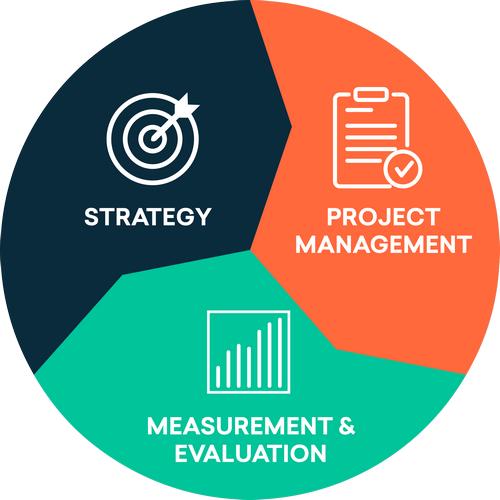
Measurement, evaluation and learning
“
“The great unexplored frontier
is evaluation under conditions of complexity.”
– Michael Quinn Patton
How do we know if what we are doing is working? Beautifully crafted strategies and deep investment in organizational development can point us in the right direction, but we must also commit to reviewing progress and learning from what’s worked and what hasn’t.
Measurement, evaluation and learning often are labeled as ‘nice-to-do’ rather than being viewed as critical activities to embed. In any type of work, however, growth and achievement rely on learning from past experience, being able to effectively communicate successes and understanding how to respond to challenges.
We support partners throughout all stages of their work to evaluate programs, co-design evaluation and learning frameworks and models and build organizational capability in this arena. These collaborations have contributed to our partners’ understanding of their own work and their confidence in telling stories of their impact and potential.
We bring a rigorous, independent perspective and employ a wide range of evaluation tools and methods. We believe that evaluation is a craft that is honed over time with careful attention to detail and best practices. We practice equitable evaluation and integrate it into every aspect of our work.
Let’s work together to deepen understanding of how and why your portfolio is or is not achieving its intended results.
Examples of questions we have addressed or are thinking about include:
- What is the relevance of an organization’s investments to the broader field?
- To what extent has a project been effective at achieving its objectives?
- What are the major enablers or disablers of progress toward achievement of the objectives of a particular program?
- Mary Kay Gugerty
IPPHL Program Director
- Yvonne Pinto
Founder and CEO, Aline Impact
- Gaby Jabbour
Senior Director, Program Quality & Compliance at Women Deliver
- Mary Kay Gugerty
University of Washington

Examples of our work include:
Organizational effectiveness evaluations
GIA designed and led assessments of an organization’s overall portfolio of work in health and environmental sustainability. These assessments led to critical decisions about the client’s trajectory, including merging with other organizations and securing additional funding to continue to grow its capacity.
